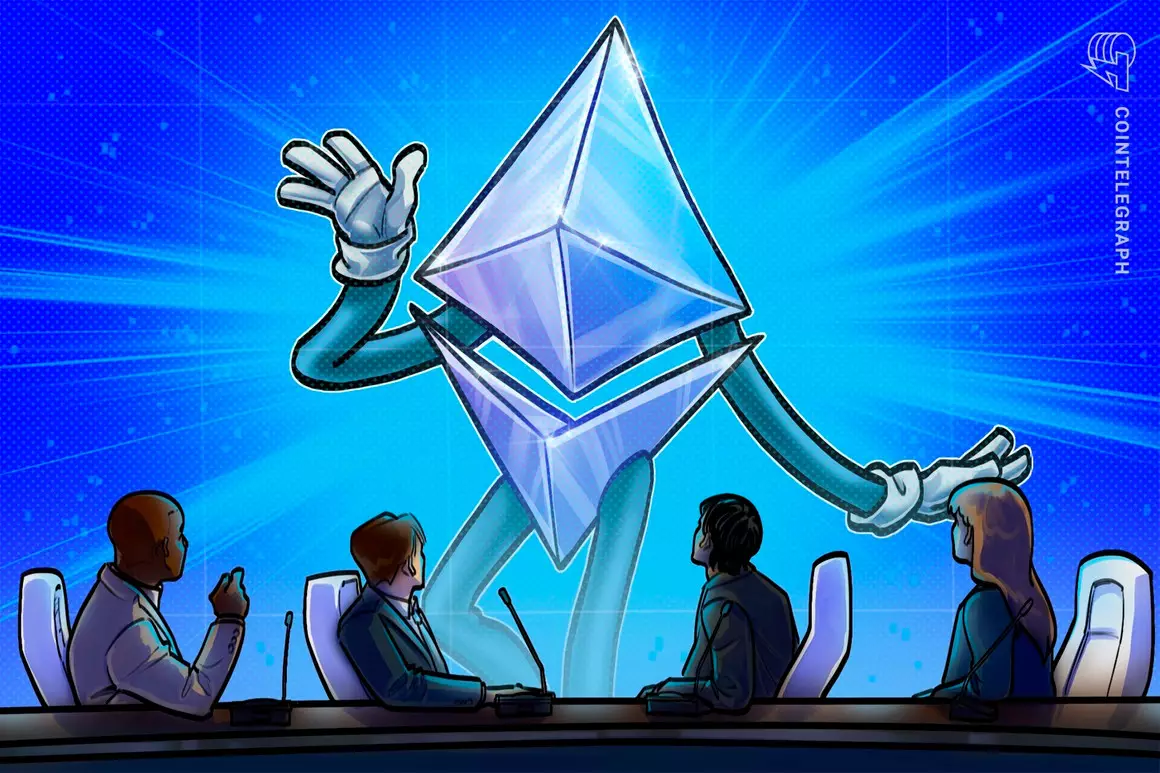Since its inception, Ethereum has been the leading smart contract and decentralized application (DApp) network. An analysis of Ether’s price (ETH) and market capitalization shows that the blockchain has been gaining market share. In recent years, Ether’s dominance in market capitalization has grown from an 18% average in July 2021 to the current 20%. Excluding Bitcoin (BTC) from the analysis, Ether’s market share presently stands at 40.6%, while its next competitor, BNB (BNB), holds a 7.2% share. The disparity between Ethereum and others is also evident when analyzing the total value locked (TVL) on each network’s smart contracts. Ethereum is the absolute leader with $24.6 billion in TVL, followed by Tron’s $5.4 billion and BNB Chain’s $3.3 billion.
The above chart depicts how Ethereum’s TVL market share decreased from 70.5% in June 2021 to 49.5% in May 2022 as Terra and Avalanche gained a combined 20% market share. However, following the Terra ecosystem collapse in May 2022 — which culminated in developers halting network activity — Ethereum quickly regained a 58% market share. Despite the emergence of DApps on the BNB and Tron blockchains, Ethereum’s leadership has remained uncontested over the past 12 months. This data shows the irrelevance of the total number of unique active wallets (UAW) interacting with smart contracts per chain.
Ethereum’s Active Developers
The Ethereum ecosystem has the highest number of active developers, surpassing 1,870, which is more than the next three competitors — Polkadot (752), Cosmos (511), and Solana (383) — combined. Currently, the Ethereum network has over 700,000 validators, with 99% of the balances locked in staking participating in the process. The 32 ETH threshold limit per validator undoubtedly inflates this number, but Lido, the largest known staking pool, controls 32% of the staking, with Coinbase coming in second with 9.6%. Consequently, it is safe to say that Ethereum is far less centralized in terms of development and validation compared with Tron, BNB Chain, and Solana.
Ethereum’s Future Contracts and NFT Market
Other reasons Ether’s dominance has been on the rise, even as Bitcoin reached a 50% market share on June 19, include derivatives activity and its dominance of the NFT market. Ether’s future contracts are essential for institutional trading practices like hedging and trading with leverage. Ether’s cash-settled futures were added to the Chicago Mercantile Exchange in February 2021. To date, no other cryptocurrency, apart from Bitcoin, has reached the world’s largest derivatives exchange. In futures markets, longs and shorts are balanced at all times, but having a larger number of active contracts — open interest — allows the participation of institutional investors who require a minimum market size. Ether futures aggregated open interest stands at $5.4 billion, while competitor BNB holds $380 million and Solana a mere $178 million.
Nonfungible tokens are a perfect example of how cheaper, faster transactions do not always translate to increased adoption. Nothing is stopping NFT projects from shifting between blockchains, whether for new listings or existing collections. In fact, y00ts and DeGods moved to Polygon earlier in 2023. Despite facing gas fees that often break above $10, Ethereum remains the absolute leader in the number of buyers and total sales. According to CryptoSlam, the leading network reached $380 million in sales over the past 30 days, while Solana, Polygon, and BNB Chain totaled a combined $93 million.
Ultimately, the data favors Ethereum versus its competing smart contract-focused blockchains. The positive trend in Ether’s dominance might fade over time if the promised network upgrade to allow parallel processing (sharding) does not come to fruition, but for now, Ether’s 20% market capitalization share remains unchallenged.

